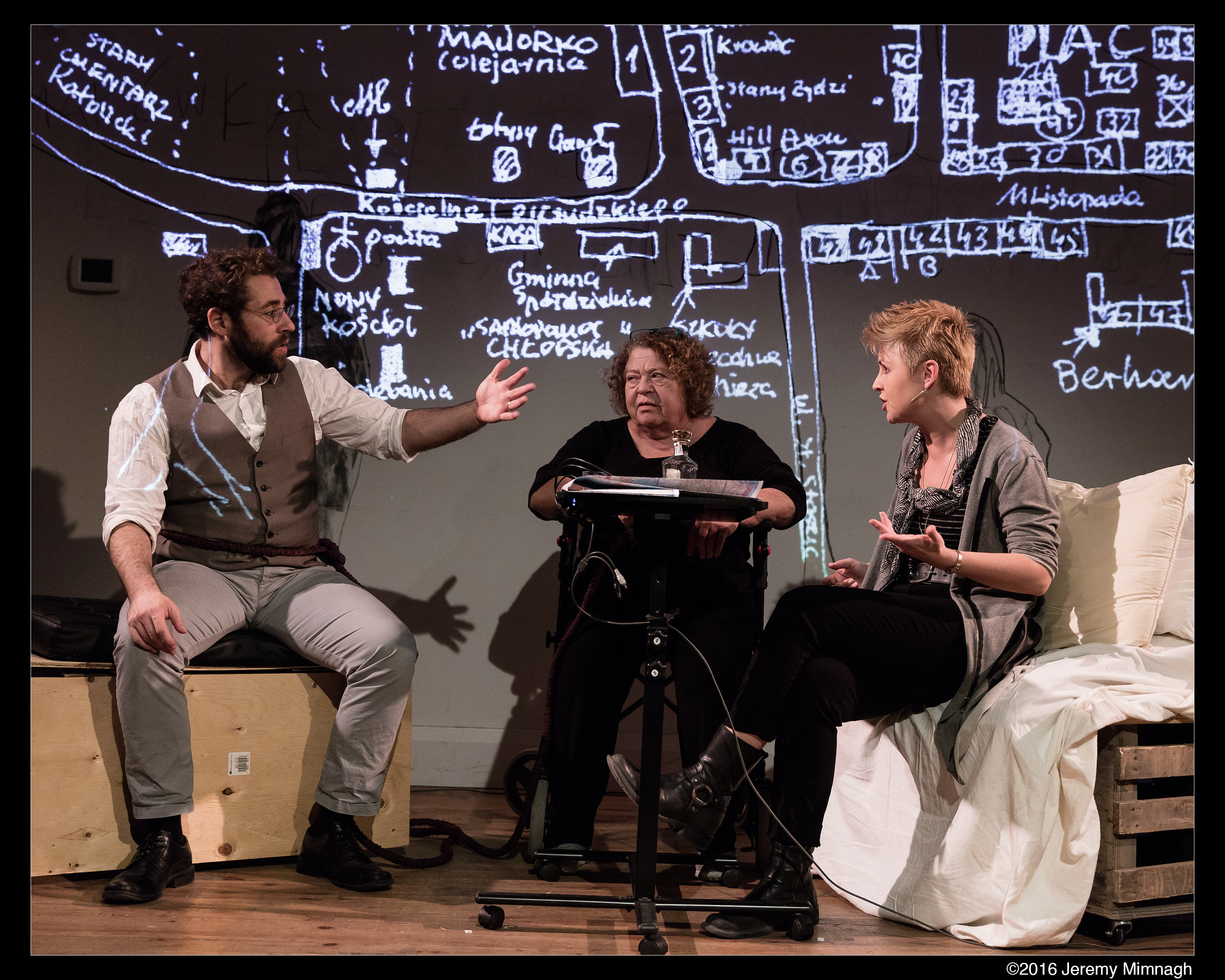
After a rigorous two weeks of apartment hunting in Toronto, my partner and I found ourselves signing the lease on a snug one bedroom on the border of Roncesvalles and Parkdale, a historically Polish neighbourhood. We had just missed the Polish Day celebration by a few days. Afterwards we’d stroll up and down the straight ruler edge of Roncesvalles, that follows the boundaries of High Park, on sunny October days and become intrigued by the abundance of Polish signs and establishments, including the silent gravity of a Polish church. During these walks, I found myself ruminating on the stories behind the Polish migration to Toronto. So when I walked into “We Keep Coming Back,” I was pleasantly surprised to serendipitously find answers to all my curious questions.
Michael Rubenfeld opens “We Keep Coming Back” with his mother, Mary Berchard, as they draw outlines of each other in chalk on a blackboard backdrop. Michael convinces Mary to accompany him to Poland in an attempt to mend their frayed over the years relationship. He feels the pull of Poland as much as Mary feels the need to resist the shadows of its past terrors. Mary, the child of Holocaust survivors, is more than happy to let the past be but Michael is convinced this homecoming will unearth magical therapeutic reckonings. He also enlists the help of a Polish filmmaker, the effervescent Katka Reszke, to provide local guidance, and to act as a buffer for potential mother and son friction.
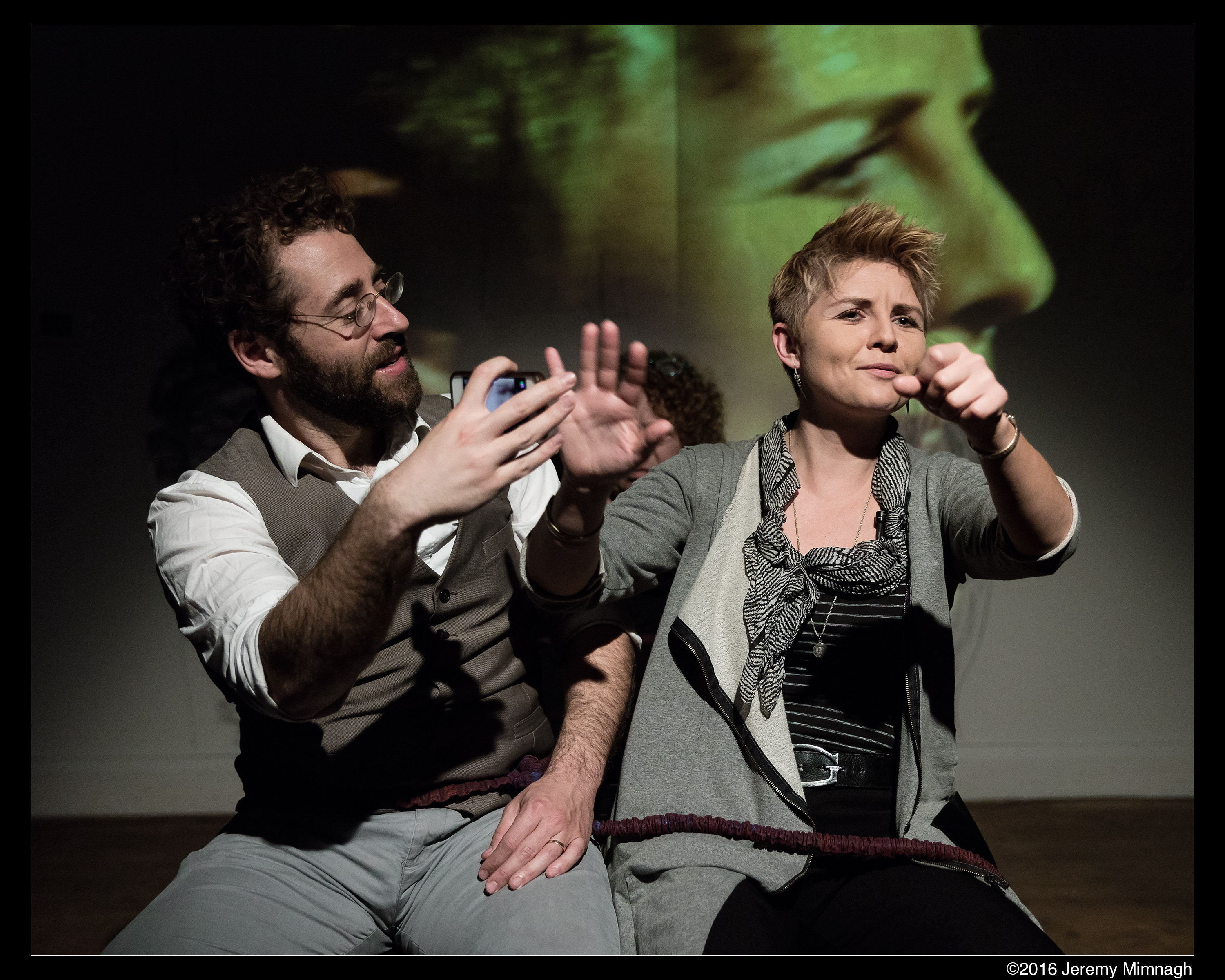
The trip unfolds and we are taken on a journey to two small villages where Mary’s parents grew up in. We learn quickly that the geography of this trip is the least important part. The trio finds itself making emotional breakthroughs in one town only to realise it is the wrong town. This frustrates Michael and makes him question the meaning we attach to our experiences and our traumas, and in turn the validity of all his feelings. Michael and Katka also get into a tiff when Michael insinuates that his trauma is more grave than hers. Katka accurately describes this as a “trauma contest”. Her experience happens to be of a lesser-known kind but shared nonetheless by many people in present day Poland. Katka discovered in her teens that her grandparents were indeed Jewish, and had posed as non-Jewish to survive the Holocaust. Mary then recounts stories of her mother and father’s families who were lost in the Holocaust. We are shown present day sites of Mary’s parent’s homes and haunting photographs of her mother’s beautiful sisters who did not know what was coming.
There is no shortage of stories about the Holocaust and every story is necessary. These stories feed our hunger to understand the dark side of human nature which after all these years continues to rear its head in our headlines. The challenge with recounting stories from the Holocaust is making the storytelling as unique and as new as possible. It’s also a challenge to take a look at history objectively, and form socio-political-economical questions to understand it better, without becoming paralysed by its horrors and the trauma. But trauma is difficult to get past. Is it even humanly possible to forget? What Michael, Mary and Katka do to manage the trauma in the play is they emphasize the essence of family in the story. We see this in the nuanced warmth of the bickering between a mother and son, the jabs and the pacifications. We see it in the familial disagreements between a mother and daughter over the rituals of bread-making.
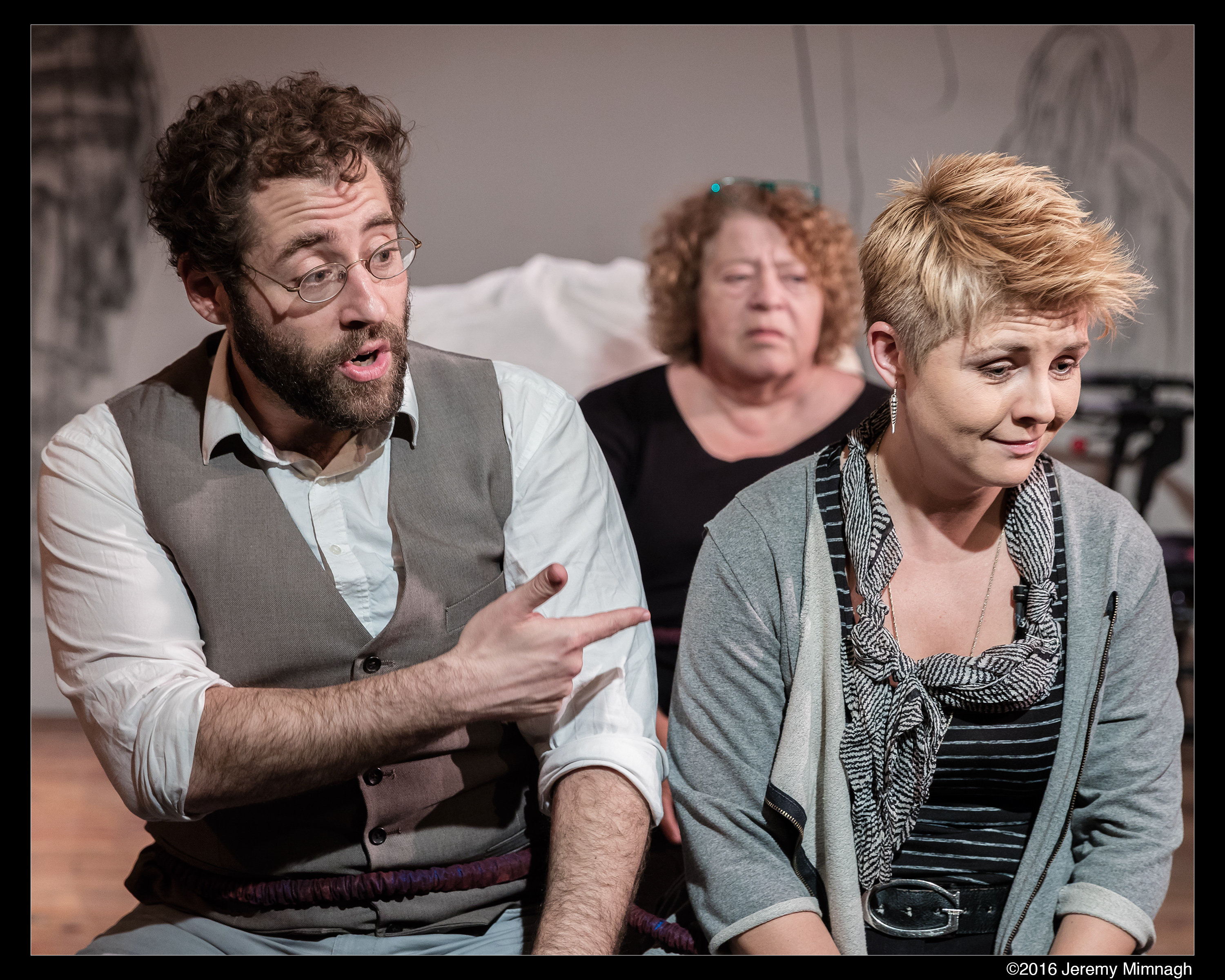
Michael and Mary’s stories were more traditional, but Katka’s was extremely interesting to me. As a person of colour I find it difficult to understand fully the distinctions between the Jewish identity and the White identity. Is the distinction purely religious? Katka’s story shed some light on this doubt for me. There surely were numerous Jewish people during the Holocaust who chose to pass as white to survive. How did trauma affect them? And what about the Jewish people who didn’t make that choice? Could they physically not? Or did they choose a tragic ending over trading in their identity? These questions are complicated and entangled. Michael reveals in the play that there were as many non-Jewish Polish people executed in the Holocaust as there were Jewish people, which goes to show that many Polish people died defending their communities. “We Keep Coming Back” explained with patience the inner conflict that embroils the descendants of Holocaust survivors. How they view identity, how they define hatred- having seen it up close, and what they can teach the rest of us, minorities and otherwise, about combating fascism.
In the post-show talk, Michael revealed that he moved to Poland to raise his family and that he feels his Jewish identity most strongly when in Poland. I asked them about what drives them to tell their stories when the world around us continues to ignore lessons from history, as we just had an anti-Semitic shooting barely a month ago. Katka informed us that despite what we see in the media in Canada, the left continues to resist in Poland and that it appears weak because it is often confused for being Communist- the country’s last great oppressor after WWII.
Factory Theatre is a big Victorian house nestled in a quiet corner of downtown, shielded by leafy trees. For this play the set was minimal. The focus was on the chalkboard on which the trio charted their journey and projected live video on to. Michael and Mary were tied by a rope to denote “ties” to our families, to our past, to our identities. Katka would film Mary and Michael as they told their stories, adding a cinematic quality to their discourse, and creating double streams of narrative – memory versus reality. The play’s multimedia format broke up the discourse and never let the audience’s attention dip. I would say this is a big strength of the show. You never get bored. There is always a joke or a novel sentiment that keeps your interest piqued.
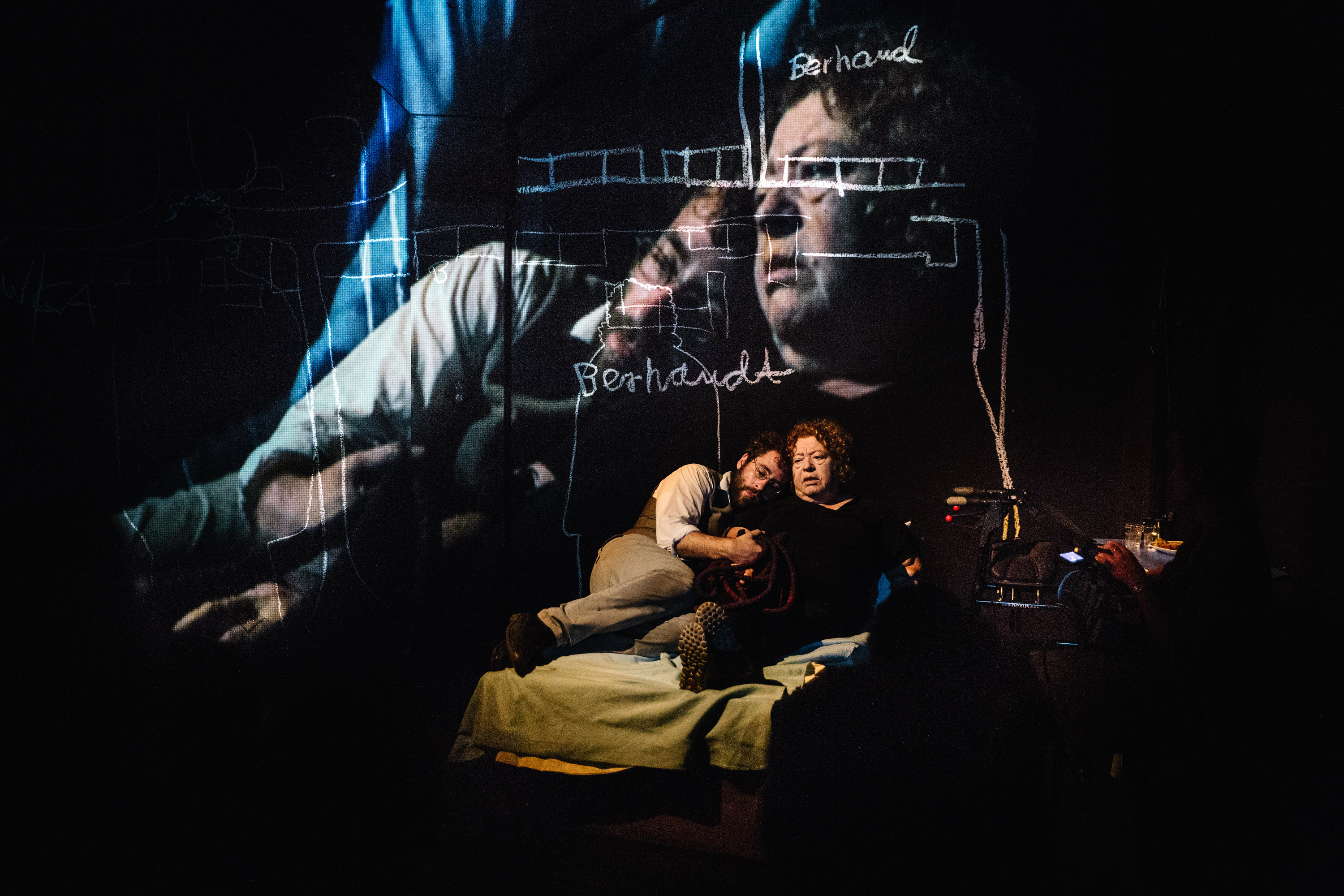
The performances and the writing are what make this show click for me. It manages to be funny in spite of the heavy subject matter. The autobiographical retelling is authentic; Michael, Mary and Katka’s feelings are real. The play educates without being preachy. The actors master the art of “not acting” without being jarring or awkward. It is wonderful! I especially appreciated Mary’s performance who has been on tour despite health issues and churns out stellar performances regardless. She made me think of my own mother and my desire to spend more time with her as the years catch up with the both of us.
“We Keep Coming Back” attains the perfect balance of educating the audience, honouring the past, entertaining, getting laughs, appealing to our humanity and putting us on alert. It’s a superhuman play. Sentimentality is never the goal of this production which makes the reactions of the audience that much more organic and authentic. The cast’s interactions with each other are genuine. Watching them become an odd little family on this unconventional road trip demonstrates that the antidote to hate and violence is family, community and love- as cheesy as it sounds.
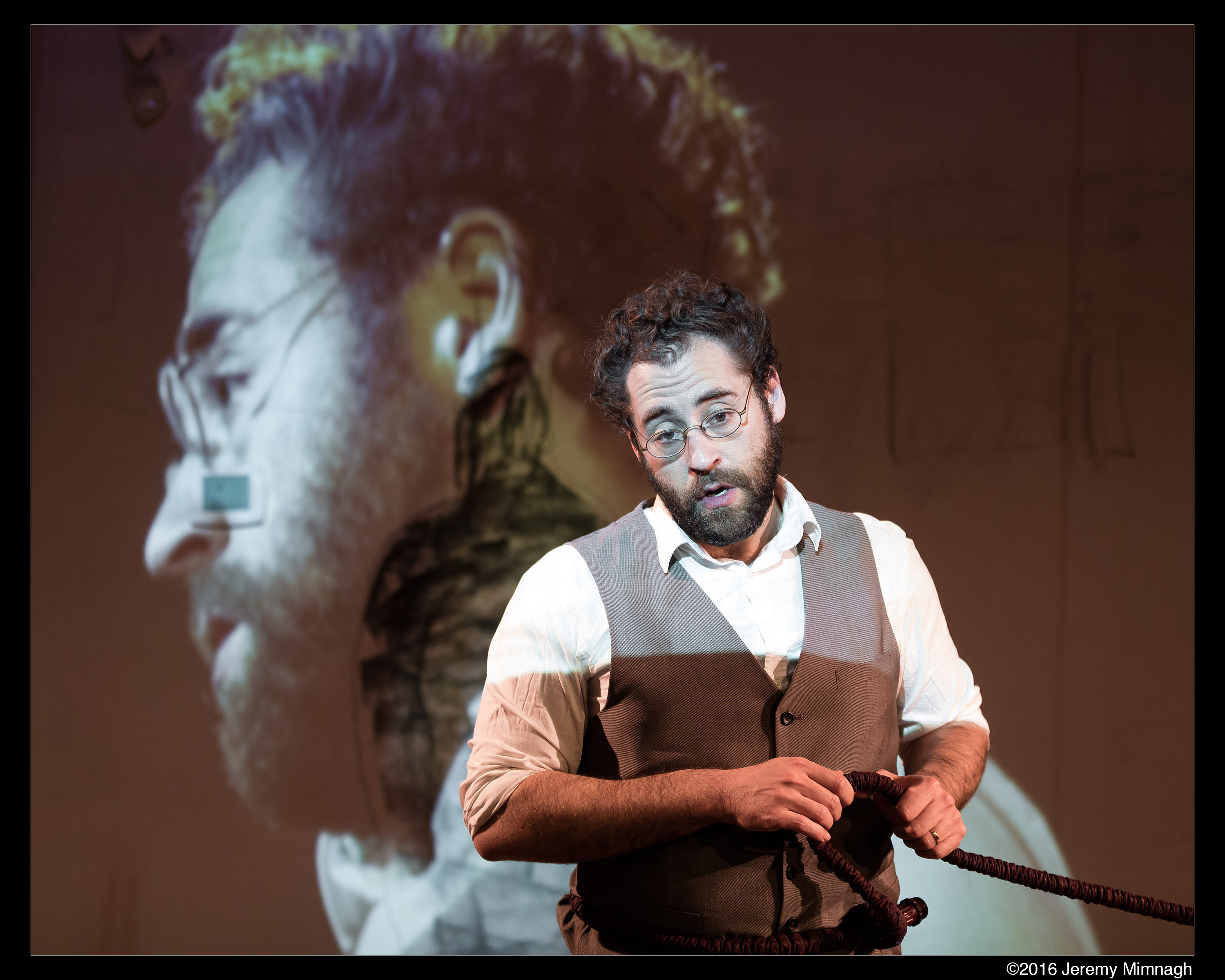
I learned a lot in “We Keep Coming Back”. I find myself drawn to Holocaust narratives. Some have had greater impact on me than others. Anne Michaels’ “Fugitive Pieces” was the last most moving book I read on the subject. Just a few weeks ago, I witnessed the sparkling genius of Ayla Lefkowitz at the Toronto Poetry Slam, in the form of a poem that expressed her relationship with the history of Holocaust in her family. It is one thing to read and watch these narratives from afar but hearing them first hand through families affected by the tragedy, (through Michael, Mary, Katka and Ayla), has added a whole new dimension to my understanding and education.
I wanted so much to visit Warsaw after watching “All These Sleepless Nights” on Netflix last year. It is a beautiful portrayal of Warsaw as a city for young, creative people on the verge of something amazing. But I was quickly discouraged when I saw news footage of Nazi rallies in the city. How could a nation so closely ravaged by violence turn to it so readily again? How could a people so villified and demonised in the United Kingdom turn around and do the same to other groups? It made no sense to me. But having seen Michael, Mary and Katka’s stories this week gave me renewed hope that I might still get a chance to see Warsaw someday. For now, I will make do with visiting the Polish deli’s in my neighbourhood, appreciate the spectrum of histories in the Polish diaspora in Toronto, and acknowledge that identities are never black and white.
Get your tickets here!
– Prachi Kamble
